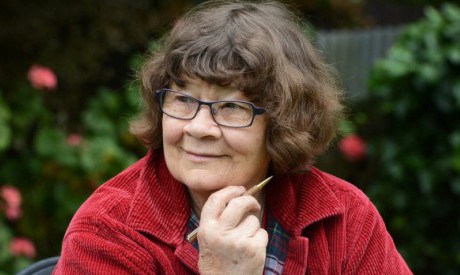The phrase “Kingdom of God” means enlightenment, say students of ancient Aramaic. And the Kingdom is not a place but a state of being, filled with the light of God’s grace.
Many of Jesus’ parables are introduced with, “The Kingdom of God is like…” and this Lent I’ve been reflecting on Jesus’ story of the wheat and the weeds.
We all know it. The farmer sowed wheat and his workers wanted to pull up the darnel, a wild grass that grew amongst the grain. No, said the farmer. If you pull up the weeds, you will damage the wheat. Let them grow together until harvest time.
As one who is getting close to harvest time, I’ve been reflecting on the wisdom of the farmer, and the relationship of weeds to wheat.
I’m not going to dwell too much on sin except to define it as that messy stuff that grows amongst my best endeavours. And because weakness is a part of strength, I know I can’t destroy it without damaging the gift I’ve been given.
Every gift has a shadow side: discernment can be judgmental, leadership can become controlling, love can be tainted with possessiveness. We all know how this works.
In the parable, the weeds were sown by the enemy. That enemy is sometimes personified as the devil. I prefer to rename it as the out-of-control ego. If we think about it, it’s that rampant ME FIRST instinct that creates all evil in the world. But there is no way we can be rid of it.
The ego is a part of our primal animal instinct for survival and it has a useful role in our development. All we can do is try to manage it. This is why the church talks a lot about sin and reconciliation.
I grew up in a tradition that taught children about a judgemental and punishing God. As I grew older, I realised that the punishing God was a false god of human invention. It was replaced by the God of my experience, the God of unconditional love, and with that came a different understanding of sin.
I learned that good and evil were often mixed and which was which, sometimes depended on the point of view. It was good that the loving father killed the fatted calf for the prodigal son: it wasn’t so good for the fatted calf.
The most important thing I learned was that my sins were wise teachers, and if I were perfect, I’d have no room for growth. So that’s where the sacrament of reconciliation comes in. It encourages me to learn from the hard lessons of life school and it also helps me to cope with those weaknesses I can’t change. It makes me deeply aware of my dependence on the loving God who created me.
It’s very simple, really. When we walk with our beloved Jesus in the gospels, the darkness always serves the light.
- Joy Cowley is a wife, mother, grandmother, great-grandmother and retreat facilitator.
